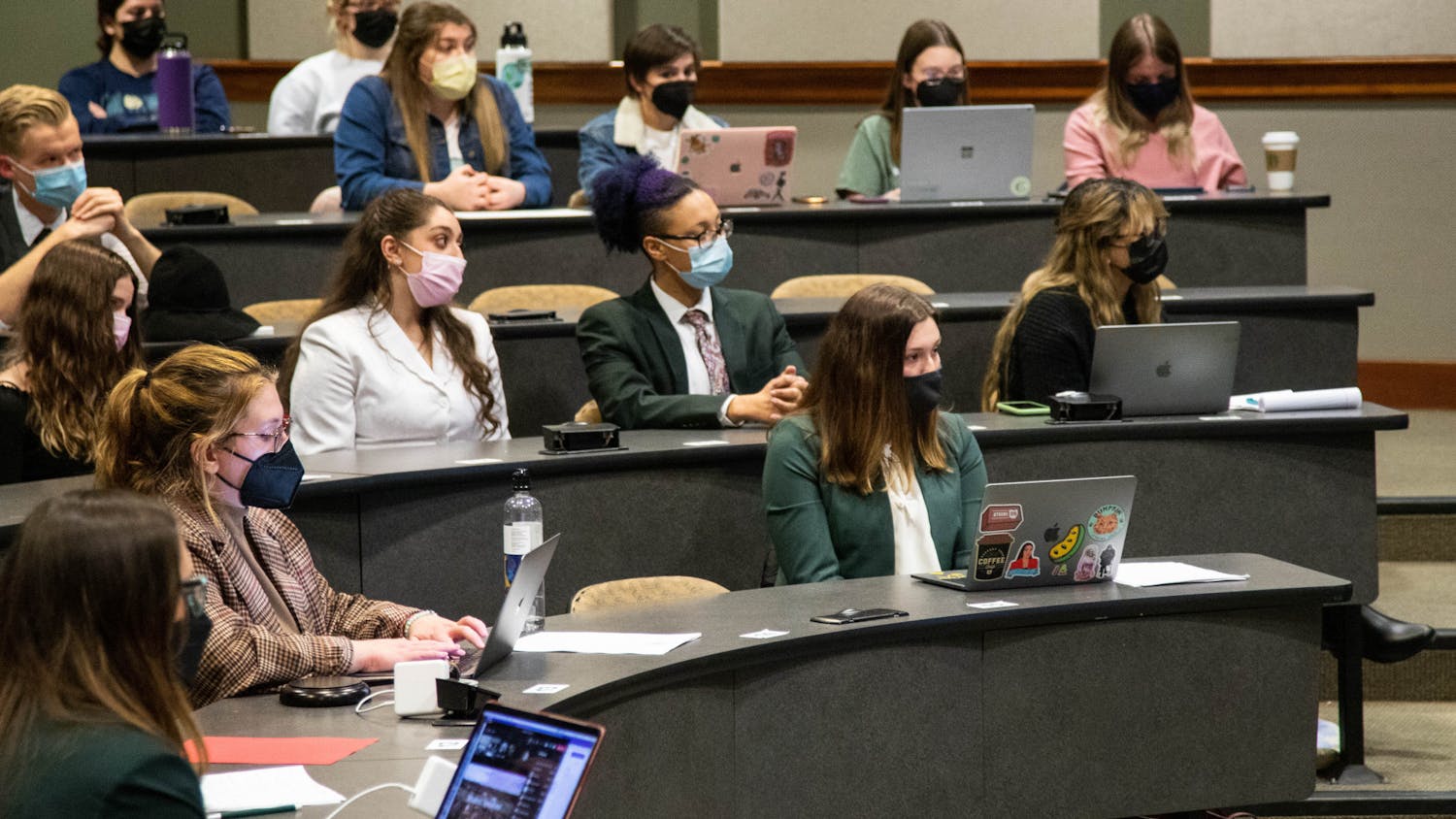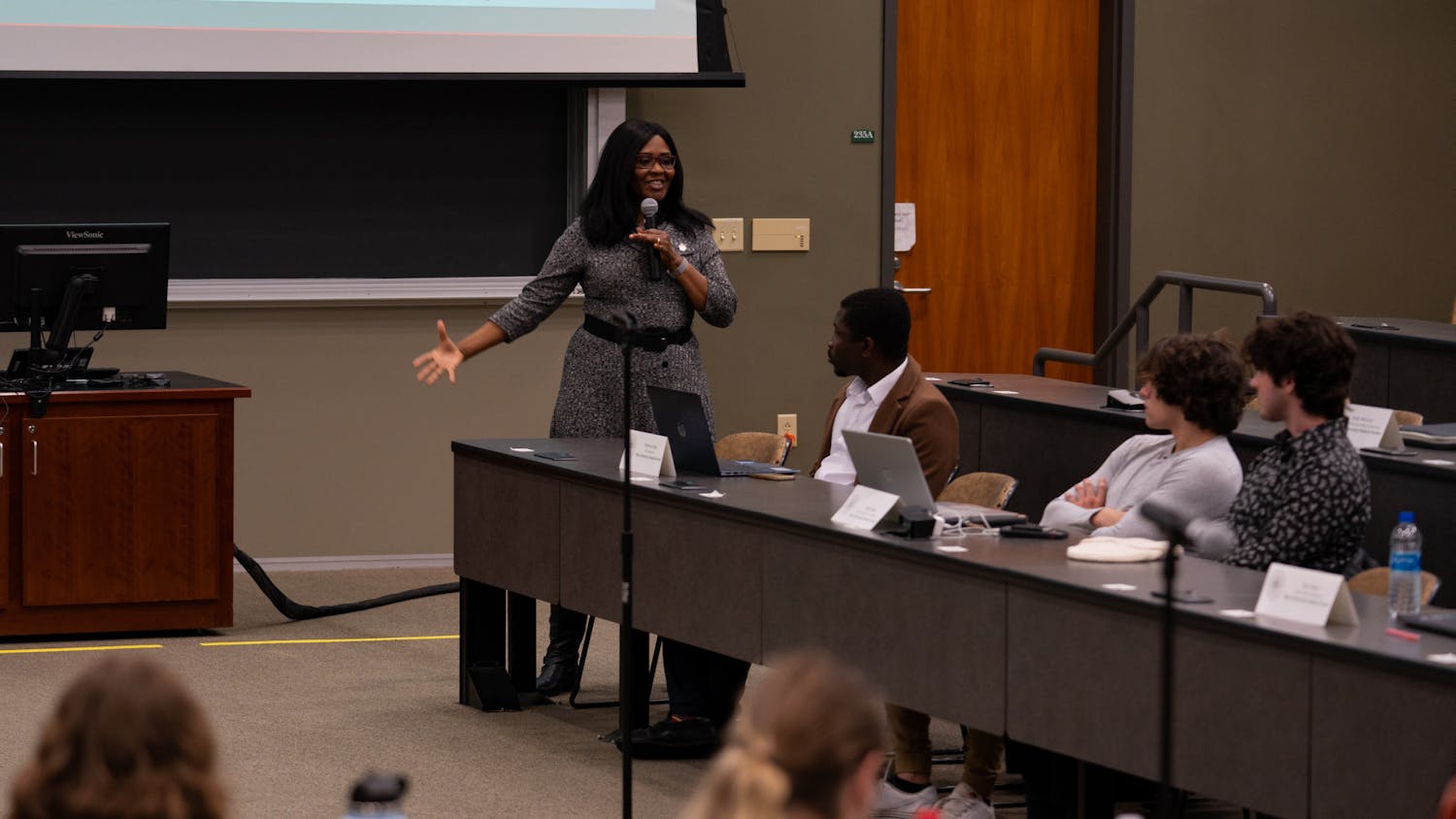Ohio University’s Student Senate passed the Bobcat Festival budget resolution Wednesday night after previously failing to pass it during the March 1 meeting.
After the resolution failed to pass, some changes were made to accommodate the concerns raised by Senate members when it was initially introduced, such as the cost and rapidly approaching festival date of March 25.
The version of the resolution that passed saw a $264 decrease from the previous projected cost of $4,593.68, now projecting a cost of $4,329.68. Furthermore, the date of the event was pushed to April 1 to coincide with OU’s Mom’s Weekend.
Clay Lewis, the university life commissioner and primary sponsor of the Bobcat Festival resolution, presented the event to Senate as a fun alternative for students who won’t drink alcohol due to religious or cultural reasons during Fest Season.
“As we are creating this event, we are also showing that Senate does care about each and every member of the student body, not just those who go out and celebrate Fest or celebrate Green Beer Day,” Lewis said. “For every student that does enjoy those events, there is also a student who does not, and those students often feel left out.”
Governmental Affairs Commissioner Dan Gordillo, one of the resolution’s secondary sponsors, emphasized the impact the Bobcat Festival could have on Senate’s reputation.
“We must see past the price tag and into the image of Senate and the power this event could possibly have,” Gordillo said.
Gordillo said that Senate may be perceived as cheap if the resolution did not pass.
Additionally, Senate heard from Ryan Spellman and Lauren Slanker about the Study Space Task Force, which serves to help students find and reserve study spaces on campus depending on their needs and preferences.
Slanker discussed the Inclusive Study Spaces Research Project and what the task force hoped to achieve with it.
“Some of our goals were to discover the factors that influence where students choose to study and whether their identity plays a role in their preference for study space,” Slanker said.
The project consisted of a survey that garnered about 200 responses from sophomore and fifth-year undergraduate students and focus groups that focused on the needs of LGBTQ students, students of color, and students with disabilities.
Slanker said there were fewer survey responses from engineering, education and business majors, males, and students of color, which could have impacted results.
Spellman also told Senate about the second version of the Study Space Locator app, which is currently in its beta stage. The app allows students to filter the visibility of available study spaces based on numerous factors including indoor or outdoor spaces, quiet or loud spaces, and spaces with amenities like printers, projectors, whiteboards and food.
Spellman said he encourages students to use the Study Space Locator app and leave feedback. The current version of the app can be found at ohio.edu/study-spaces, and the newer, beta version can be found at arcg.is/1y8D1H.
“Give us feedback,” Spellman said. “We really want to hear from you and how we can make this to serve all of you.”





